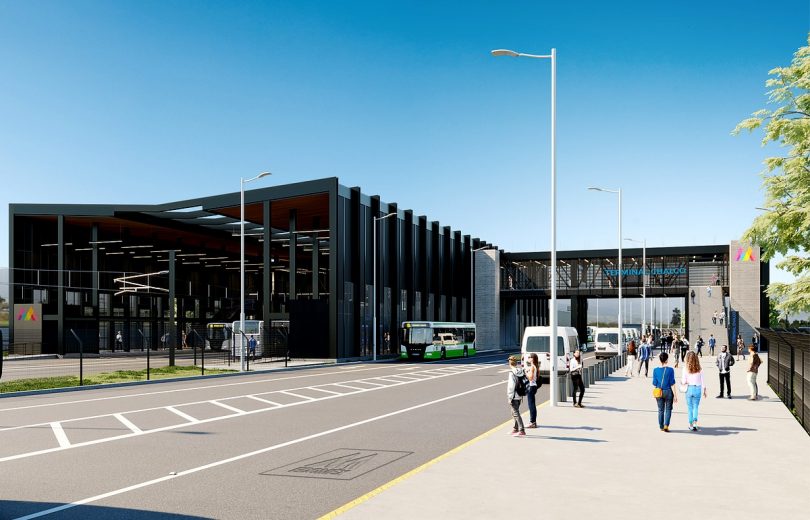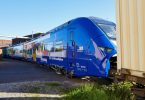[Sener Group] – The State of Mexico has entrusted Sener with engineering and planning services for the Chalco-Santa Marta trolleybus system in the country’s capital. The project includes a fleet of 120 articulated vehicles with a capacity of 142 passengers each, a track length of more than 18 kilometers and 15 stations.
Chalco-Santa Marta is the first electric corridor promoted by the State of Mexico, Sener being the first engineering firm to work on this type of project for the entity. The Sener group will be responsible for engineering and planning services for the Chalco-Santa Marta trolleybus corridor, promoted by the State of Mexico and located in the country’s capital. Specifically, the construction company La Peninsular was the successful bidder for a turnkey contract that includes the corridor’s design and commissioning; it has entrusted Sener with the engineering services that will allow the construction company to provide the infrastructure, systems and building of all components. Chalco-Santa Marta is the first electric corridor developed by the State of Mexico, and Sener is the first engineering firm to work on this type of project for the entity.
The corridor will be operated by the Mexico City Electric Transport System and will help improve connections between the eastern part of Mexico City with its metropolitan area, to the benefit of approximately 120,000 people. The project is also the first of its type to directly connect both areas, avoiding pedestrian transfer times and distances at interchanges. This means any passenger may reach the central transport routes in Mexico City without walking long distances or using other transport systems.
The corridor will improve existing public transport alternatives, offering a more secure and reliable system. It is estimated that the current journey time in this section is around two hours: with the integration of the Chalco-Santa Marta corridor, this time will be reduced to approximately 35 minutes, with a trolleybus service frequency of just over 1 minute.
Sener will provide technical advice, planning and design for engineering services to create the corridor, which includes a fleet of 120 articulated trolleybuses, with capacity for 142 passengers each, a track length of more than 18 kilometers and 15 stations with a distance of approximately 1.5 kilometers between them. The track includes two types of structure, by viaduct (7.5 kilometers, with 220 reinforced concrete columns) and ground-level, while the stations are different types, depending on their urban location:
- 3, at viaduct level;
- 4, on a special lane on the 150D Federal Road (Mexico-Puebla Highway);
- 6, in the vicinity of the urban area of the municipalities of Chalco de Díaz and Valle de Chalco;
- and 2 at the ends of the corridor.
The corridor will facilitate and modernize the connection between the State and Mexico City, helping to promote a cohesive and sustainable model of public transport planning and operation. To this end, Sener will contribute its knowledge in the planning and design of mobility and infrastructure solutions, with decades of experience improving the travel of millions of people in more than 50 cities across 5 continents.
Sener has developed more than 70 efficient, safe, sustainable and integrated transport systems in the area, such as metro lines (lines 1, 6 and 9 in Panama, São Paulo and Barcelona, respectively, or the Riyadh metro in Saudi Arabia), light metro (including Porto, Oran and Edinburgh) or monorail (Cairo, Salvador de Bahía), among others.
Daniel Rodríguez Mendoza, Sener architect and engineer in Mexico and head of the project, emphasizes that “the Chalco-Santa Marta corridor will shorten distances and improve the quality of life of the inhabitants of the State of Mexico, who will have a reliable, safe and clean public transport system, facilitating the development of a more cohesive and integrated planning model between the State and the City”.
Sener is a private engineering and technology group founded in 1956 that offers innovative and customized solutions in the following sectors: Aerospace, Infrastructure, Energy, Marine, Diagnostics and Digital.





